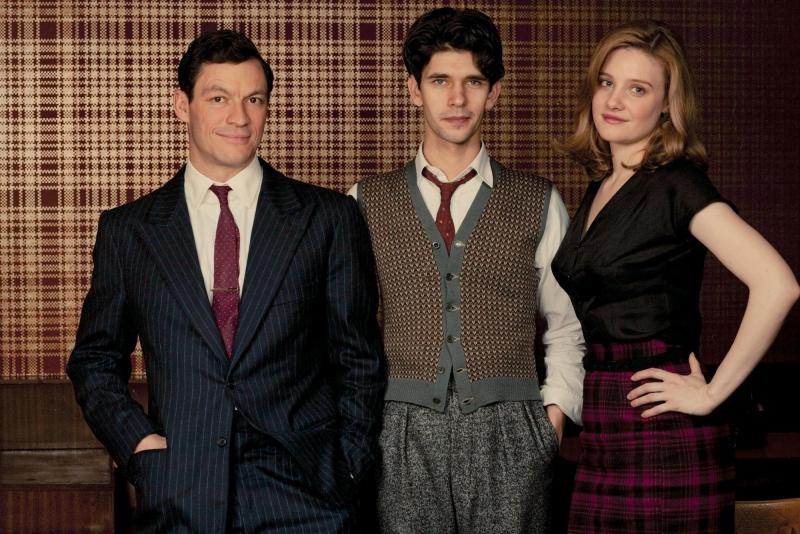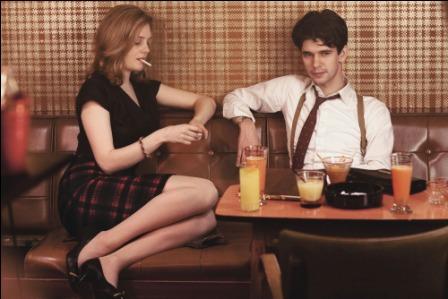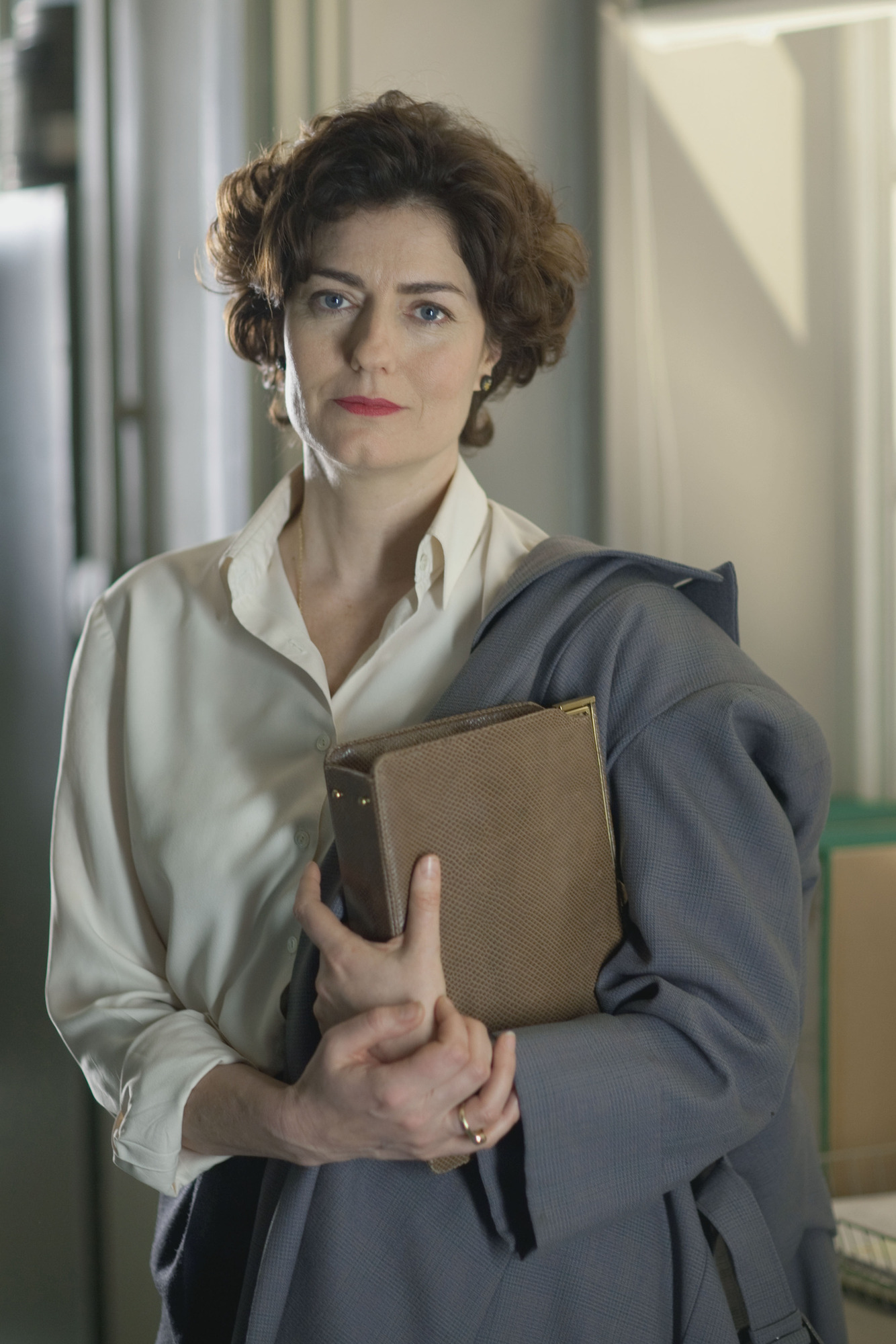The Hour, Series Finale, BBC Two | reviews, news & interviews
The Hour, Series Finale, BBC Two
The Hour, Series Finale, BBC Two
Incoherent plot, unconvincing characters, implausible dialogue - but still fun

Part of the fun of watching The Hour, in the absence of a coherent plot, convincing characters and plausible period dialogue, was ruminating on the myriad different ways it could be sliced: a grown-up Press Gang meets Mad Men? The Spy Who Came in From the Cold versus Spooks? All the President’s Men crossbred with Foyle’s War?
What a confused and cross-eyed load of old nonsense it was, but oddly enjoyable nonsense for all that. What it did well it did very well: the drab, shabby, hospital pallor of Fifties London was convincingly evoked. The casting was excellent and the attention to detail forensic: pep pills on the desks; working telex machines; all the crimplene you could eat. But my, how it longed to be Important Television – and whatever else it was, it wasn’t quite that.
For six weeks we’ve followed the fortunes of Bel Rowley (Romola Garai) and Freddie Lyon (Ben Whishaw) (both pictured below), two idealistic young friends in 1956 London promoted from working on dull newsreels to the BBC’s new cutting-edge current affairs programme "The Hour". In an early blow for feminism, Bel was made producer while Freddie joined as home affairs reporter. Hector Madden (Dominic West) was parachuted in as the smooth upper-class anchor.
Against the backdrop of the news team reporting on the escalating Suez crisis various subplots uncoiled: Freddie, dragged into a shadowy nexus of MI6-sanctioned murder, surveillance and a plot to assassinate Nasser, eventually learned he had been earmarked as a "Brightstone", a potential KGB recruit. Bel and unhappily married Hector embarked on a doomed affair while Freddie watched, his poetic little soul full of unrequited longing for one and simmering class resentment for the other. In time the news team forged the unlikely bond of liberal firebrands tilting at the establishment.
 The aim was to cast a roving eye over the broad sweep of the times, from Soviet spy rings to shifting social and sexual mores; from Suez to, God help us, the birth of British satire. In doing so, The Hour bit off considerably more than it could chew. It wasn’t helped by a script which was almost entirely reliant on clichés, clunky exposition and tired archetypes: the chirpy cockney secretary; the spy lurking by a lamp post beneath a curlicue of smoke. Hindsight, meanwhile, made everyone a soothsayer: “There’s a young politician in America called Kennedy - we should watch him,” insisted Freddie in episode one. There was a lot of that kind of thing.
The aim was to cast a roving eye over the broad sweep of the times, from Soviet spy rings to shifting social and sexual mores; from Suez to, God help us, the birth of British satire. In doing so, The Hour bit off considerably more than it could chew. It wasn’t helped by a script which was almost entirely reliant on clichés, clunky exposition and tired archetypes: the chirpy cockney secretary; the spy lurking by a lamp post beneath a curlicue of smoke. Hindsight, meanwhile, made everyone a soothsayer: “There’s a young politician in America called Kennedy - we should watch him,” insisted Freddie in episode one. There was a lot of that kind of thing.
Having meandered, dilly-dallied and frequently drifted off course en route to last night’s final episode, The Hour didn’t quite know what to do when it got there. The denouement was largely lacking in fireworks or twists. BBC boss Clarence (a fine turn by Anton Lesser) was unmasked as the Soviet agent lurking in the nest, a shock of Pope/Catholic, bears/woods magnitude. Having put together The Hour (and its team) with the intention of making it his personal plaything for spreading dissent against the government, his plot worked so well that the final episode lasted 36 minutes before being ignominiously dragged off air.
That the programme would go down in a valiant burst of self-righteous flames was a given. Freddie wheeled in a titled whistle-blower and got his moment in Hector’s chair (but not – at least not yet – in Bel’s bed). By the time he delivered his straight-to-camera eulogy on democratic values we were floating high above Lime Grove and heading directly for cloud cuckoo land.
This graceless grafting of the liberal values of 2011 onto 1956 encapsulated the problem with The Hour. Nobody and nothing in it really seemed to belong there. Last night’s brazen appropriation of public dissent over the invasion of Egypt and a satirical sketch about an “illegal war” was such a blatantly self-congratulatory critique of Britain’s involvement in Iraq and Afghanistan that it all but obliterated dramatic truth. Hinting at historical parallels is one thing; sacrificing any semblance of plausibility for smug polemic quite another.
In the end, The Hour was just about worth sticking with because its principal players worked hard to give their characters a three-dimensional quality the writing barely merited. Garai, a picture in a pencil skirt, gamely threw feistiness, vulnerability, sensuality, toughness, guile and the entire Belfast sink at Bel – but still this underwritten, oddly unformed character failed to develop between episodes one and six.
 West fared better, imbuing an essentially unsympathetic cove with enough humanity, desperation and yearning to make clear that privileged, handsome Hector was as much a victim of the times as everyone else. Beneath Freddie’s relentless, chippy idealism and brittle boyishness Whishaw, too, worked hard to find heart and humour.
West fared better, imbuing an essentially unsympathetic cove with enough humanity, desperation and yearning to make clear that privileged, handsome Hector was as much a victim of the times as everyone else. Beneath Freddie’s relentless, chippy idealism and brittle boyishness Whishaw, too, worked hard to find heart and humour.
Julian Rhind-Tutt clearly relished playing clammy government official Angus McCain as a moustache-twirling pantomime villain, while Anna Chancellor (pictured right) quietly stole the show as Lix, a premonition of what Bel might become should she choose a career over a family. A brisk, bright, whisky-fuelled workaholic who slept in the office, Lix was perpetually puffing on a gasper and wasn’t averse to a quick after-hours tumble with young Freddie when the loneliness closed in.
There is, apparently, going to be another series of The Hour. On balance I’m glad, because I’d like to spend more time with these characters. The task in hand next time will be to find something really worthwhile for them to say and do.
- Watch The Hour on BBC iPlayer
Add comment
The future of Arts Journalism
You can stop theartsdesk.com closing!
We urgently need financing to survive. Our fundraising drive has thus far raised £49,000 but we need to reach £100,000 or we will be forced to close. Please contribute here: https://gofund.me/c3f6033d
And if you can forward this information to anyone who might assist, we’d be grateful.

Subscribe to theartsdesk.com
Thank you for continuing to read our work on theartsdesk.com. For unlimited access to every article in its entirety, including our archive of more than 15,000 pieces, we're asking for £5 per month or £40 per year. We feel it's a very good deal, and hope you do too.
To take a subscription now simply click here.
And if you're looking for that extra gift for a friend or family member, why not treat them to a theartsdesk.com gift subscription?
more TV
 Murder Before Evensong, Acorn TV review - death comes to the picturesque village of Champton
The Rev Richard Coles's sleuthing cleric hits the screen
Murder Before Evensong, Acorn TV review - death comes to the picturesque village of Champton
The Rev Richard Coles's sleuthing cleric hits the screen
 Black Rabbit, Netflix review - grime and punishment in New York City
Jude Law and Jason Bateman tread the thin line between love and hate
Black Rabbit, Netflix review - grime and punishment in New York City
Jude Law and Jason Bateman tread the thin line between love and hate
 The Hack, ITV review - plodding anatomy of twin UK scandals
Jack Thorne's skill can't disguise the bagginess of his double-headed material
The Hack, ITV review - plodding anatomy of twin UK scandals
Jack Thorne's skill can't disguise the bagginess of his double-headed material
 Slow Horses, Series 5, Apple TV+ review - terror, trauma and impeccable comic timing
Jackson Lamb's band of MI5 misfits continues to fascinate and amuse
Slow Horses, Series 5, Apple TV+ review - terror, trauma and impeccable comic timing
Jackson Lamb's band of MI5 misfits continues to fascinate and amuse
 Coldwater, ITV1 review - horror and black comedy in the Highlands
Superb cast lights up David Ireland's cunning thriller
Coldwater, ITV1 review - horror and black comedy in the Highlands
Superb cast lights up David Ireland's cunning thriller
 Blu-ray: The Sweeney - Series One
Influential and entertaining 1970s police drama, handsomely restored
Blu-ray: The Sweeney - Series One
Influential and entertaining 1970s police drama, handsomely restored
 I Fought the Law, ITVX review - how an 800-year-old law was challenged and changed
Sheridan Smith's raw performance dominates ITV's new docudrama about injustice
I Fought the Law, ITVX review - how an 800-year-old law was challenged and changed
Sheridan Smith's raw performance dominates ITV's new docudrama about injustice
 The Paper, Sky Max review - a spinoff of the US Office worth waiting 20 years for
Perfectly judged recycling of the original's key elements, with a star turn at its heart
The Paper, Sky Max review - a spinoff of the US Office worth waiting 20 years for
Perfectly judged recycling of the original's key elements, with a star turn at its heart
 The Guest, BBC One review - be careful what you wish for
A terrific Eve Myles stars in addictive Welsh mystery
The Guest, BBC One review - be careful what you wish for
A terrific Eve Myles stars in addictive Welsh mystery
 theartsdesk Q&A: Suranne Jones on 'Hostage', power pants and politics
The star and producer talks about taking on the role of Prime Minister, wearing high heels and living in the public eye
theartsdesk Q&A: Suranne Jones on 'Hostage', power pants and politics
The star and producer talks about taking on the role of Prime Minister, wearing high heels and living in the public eye
 King & Conqueror, BBC One review - not many kicks in 1066
Turgid medieval drama leaves viewers in the dark
King & Conqueror, BBC One review - not many kicks in 1066
Turgid medieval drama leaves viewers in the dark
 Hostage, Netflix review - entente not-too-cordiale
Suranne Jones and Julie Delpy cross swords in confused political drama
Hostage, Netflix review - entente not-too-cordiale
Suranne Jones and Julie Delpy cross swords in confused political drama

Comments
...
...
...